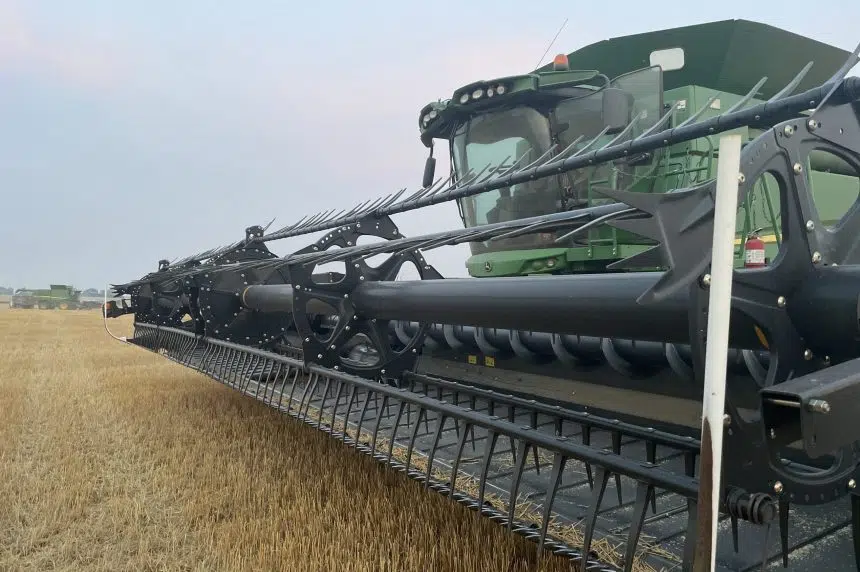Farmers in Saskatchewan are ahead of schedule with the 2023 harvest.
The weekly crop report from the Ministry of Agriculture said that as of Monday, harvest was 21 per cent done across the province, well ahead of the five-year average for this time of year of 14 per cent and the 10-year average of 11 per cent.
The ministry said producers in the southwest were furthest ahead at 38 per cent, followed by those in the west-central region at 27 per cent. Farmers in the northwest dealt with rain during the week, so harvest was just four per cent done.
Fall cereals topped the crops that had been harvested, with 89 per cent of fall rye and 74 per cent of winter wheat crops in the bin. Among the spring-seeded crops, field peas and lentils led the way at 66 per cent and 60 per cent, respectively.
While drought conditions have been an issue this summer, scattered showers that fell across the province during the week improved topsoil moisture levels.
According to the report, 32 per cent of cropland had adequate moisture, 41 per cent was short and 27 per cent was very short. Those numbers were 26 per cent, 45 per cent and 29 per cent, respectively, in the previous report.
Hay and pasture land moisture levels also improved to 24 per cent adequate (up from 21 per cent a week earlier), with 42 per cent short (down from 45 per cent) and 34 per cent very short (unchanged).
The report noted that the recent precipitation has helped pasture conditions in the province. It noted that 12 per cent of pastures were rated as being in good condition, 29 per cent were considered fair, 40 per cent were poor and 19 per cent were very poor.
Despite that, the drought has caused issues in many pastures this year; the report said nine per cent of forage acres didn’t get cut or baled this year because of the dry conditions.
The ministry said crop damage that was reported during the week had been caused by wind, localized flooding, drought, grasshoppers and gophers.
The report reminded producers to take safety precautions, including having firefighting equipment on hand and taking care around power lines.
Harvest time is stressful for farmers, the report added, and it urged them to seek help if they feel overwhelmed.
“The Farm Stress Line is available to provide support to producers toll free at 1-800-667-4442,” the report said. “The public is reminded to use extra caution when encountering machinery on the roads, and to give extra time and space.”







